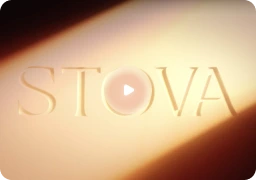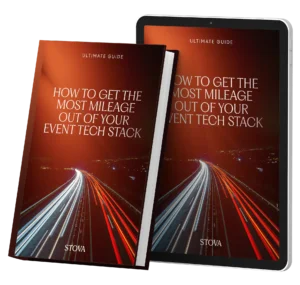Fear of Acronym Fail (FAF): A Guide to Event Industry Acronyms
April 18, 2016
The acronym is an inescapable organism of modern business vernacular. Perhaps there was once some sense of acronym creation control or curation, but these days I wonder if there isn’t a Willy Wonka style acronym factory run by social media and marketing Oompa Loompas. The result is today we now have to endure networking functions and inhouse meetings that are fraught with the unspoken Fear of Acronym Fail (FAF)
“Am I going to be exposed as a fraud? Do I pretend to know what an SMMP is, or do I ask? Will I permanently damage my credibility, or will I hear a sigh of relief around the room that someone else took the hit?”
Acronyms date back at least as far as biblical times with the inscription “INRI” (Iesus Nazarenus, Rex Iudaeorum) reputedly being carved on Christ’s crucifix. The military and government were early adopters of the acronym, but its use in business was still moderate as recently as fifty years ago. But business has moved on, and as IBM became a behemoth, so did the acronym beast.
Do event professionals get hit harder?
All industries are overwhelmed with acronyms, but modern events industry professionals get slammed, simply because they sit right on the intersection of the corporate world’s two biggest acronym producers marketing and technology. I should know I’ve just come back into this space after a peaceful hiatus in the wine industry where acronyms are the antithesis of the agonisingly elegant, if verbose, prose du vin.
So take your marketing and tech speak, then add a full complement of the acronyms from the other inhouse sectors that feed into the event manager’s daily life: finance, sales, procurement, project management, IT, etc. Then top it off with a healthy dose of the vertical sectors for whom you may be working telco, finance, retail, food services, government, agriculture, associations; the possibilities are endless.
Your Guide to Overcoming Fear of Acronym Failure
Tip #1: If you don’t know the acronym in use, ask last
This is only if you are feeling vulnerable and out of your depth. Otherwise ask away!
To ask last may go against the popular push for transparency and authenticity in our daily business interactions, but the reality is that people imbed impressions early, and sometimes you need to fake it until you make it. So if you have opportunity to keep a low profile whilst you do some research just follow these steps:
- Write the acronym down as soon as you hear it.
- Check your cheat sheet (which you can hide in the back of your notebook).
- If not found on your cheat sheet, Google it.
- If it hasn’t turned up in either of these places you can be fairly confident it is an inhouse or obscure term, so ask away.
Tip #2: Be a responsible acronymer (acroonymist?)
Acronym invention is an act of creation with consequences that should not be taken lightly. Like having children you can’t give them back once they’ve popped out! A mini peer review amongst colleagues and friends is always a good way of picking up any unfortunate clashes or associations. And yes, Google it!
Tip #3: Don’t fight the acronym
Today the acronym is commonly unpunctuated, and the letters may also not be an exact iteration of the initials they represent, such as UX (User eXperience). Don’t fight it… language is a living thing that is impervious to the rules we wish to impose upon it.
And remember… The Oompa Loompas stop for no one, so rest assured this list below is not finite and we welcome your contributions and comments. Or perhaps you have some thoughts on what we should cover next in our acronym journey let us know in the comments!
The Top Acronyms in the Event Planning Industry
| ACRONYM | STANDS FOR | MEANING |
| API | Application Programming Interface | A set of programming protocols and instructions that allows one set of software to interact with specific elements of another, for the purpose of sharing data or taking actions on another’s behalf. |
| AV | Audio Visual | The suite of technology responsible for delivering sound and/or visual equipment such as mics, sound systems, music, screens & other displays. |
| BE | Business Event | An event specifically for business purposes. |
| BEM | Business Event Manager/ment | A rarely used term to describe the management or manager of events that are specific to a business or industry. |
| BEO | Banquet Event Order | A document outlining all event logistics pertinent to the host venue. A dated approach, this is outmoded due to the complexity of modern events. |
| CEM | Certified Exhibition Management | An independent education and certification program most popular in North America. |
| CRM | Customer Relationship Management | The strategies and processes a company uses to track and analyse their customer interactions. CRM is often used to refer directly to software that is employed for this purpose. |
| CRS | Central Reservation System | Reservation software utilized by the travel industry for information and transactions. |
| CSR | Corporate Social Responsibility | An organisation’s self regulation of its activities & decisions pertaining to their impact on society & the environment. |
| CMM | Certified Meeting Manager Certificate in Meeting Management | Education, certification & accreditation provided by a variety of global independent institutions and associations such as MPI (US) and MEA (AUS). |
| CMP | Certified Meeting Professional | A globally recognized qualification achieved through education, examination & professional experience. |
| CVB | Convention Visitors Bureau | An organisation that promotes a specific region with the purpose of increasing visitors and visitor spend via convention sales, tourism marketing & services. Also known as DMO (Destination Marketing Organisation). |
| DMC | Destination Management Company | A professional services company which specialises in events, tours and travel logistics for a specialised local area. |
| DMO | Destination Marketing Organisation | An organisation that promotes a specific region with the purpose of increasing visitors and visitor spending via convention sales, tourism marketing and services. Also known as CVB (Convention Visitors Bureau). |
| EMS | Event Management Software | A software program that is used to streamline the planning, execution and analysis of events |
| EMG | Event Management Guide | A form used by venues to outline the specific requirements of an event they are hosting. Alternative forms include an ESG (Event Specifications Guide). |
| ESG | Event Specifications Guide | A form used by venues to outline the specific requirements of an event they’re hosting. Other forms include an EMG (Event Management Guide). |
| ETA | Estimated Time of Arrival | A non-exact time for expected delivery or arrival of an item or person. |
| F&B | Food and Beverage | All food and drink relevant to the requirements of the event. |
| GDS | Global Distribution System | A system that provides information on rates, availability & other services for hotels & transport; includes reservations, ticketing & access to subscribing third parties. |
| LMS | Learning Management System | A software program that facilitates online education, assessment and accreditation. Also known as e-learning. |
| MICE | Meetings Incentives Conferences & Exhibitions | A globally recognised term for the events industry. |
| PCIDSS | Payment Card Industry Data Security Standards | Often referenced as “PCI Compliance,” this refers to the set of requirements designed to ensure a company processes, stores and transmits credit card information in a secure environment. |
| PCO | Professional Conference Organiser | An individual or agency whose work is dedicated to organising conferences of behalf of their client. |
| SAAS | Software as a Service | Internet based software that users can access & utilize from an online device. |
| RFP | Request for Proposal | A formal document outlining an organisation’s requirements for the fulfilment of a body of work or a service. |
| RFT | Request for Tender | Another term for RFP (Request for Proposal). |
| ROI | Return on Investment | The estimated benefit (return) to a business of undertaking an activity (investment). Generally applied as Output Value – Input Cost. |
| RTO | Registered Training Organisation | Australian training organisations that have met the standards as set by the National Vocational Educational and Training Regulator Act 2011. |
| SMM | Strategic Meetings Management | SMM is enterprise-wide management of all process and policy related to meetings, including but not limited to supply chain, cost reduction, approvals, risk mitigation, etc. |
| MMP | Strategic Meetings Management Program | Software that is designed to host and manage all information pertaining to an organisations SMM. |
| SQL | Sales Qualified Lead | Criteria as set by sales & marketing to determine what pre-qualifies a prospective customer to be progressed to the next step in the sales process. |
| UI | User Interface | The visual design element of a computer application through which the user engages with the device or software. |
| UX | User Experience | A customer’s interaction experience & satisfaction with the usability of a product. |
Too much to consume? Grab our infographic with our top 10!
Whether your event is virtual, hybrid, or in-person, enhance your attendee’s journey with an event ecosystem built for your audience. Ready to walk through Stova's event technology solutions? Schedule some time with us today.


